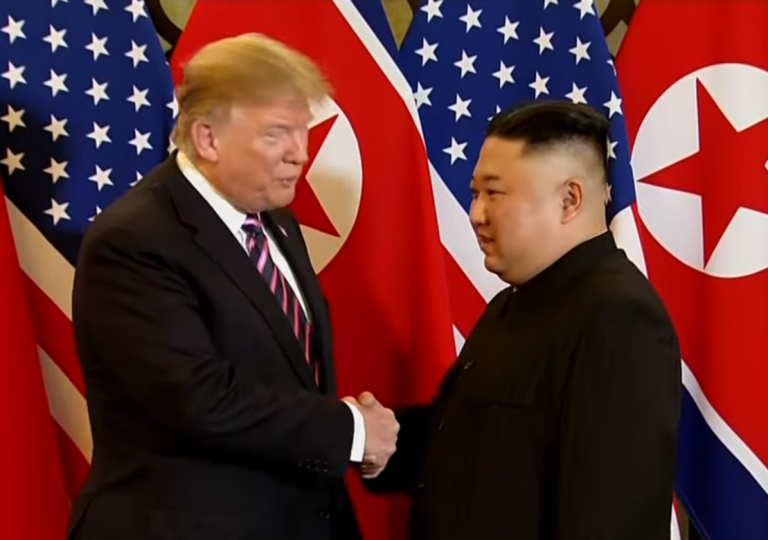U.S. President Trump, refusing to accept North Korean requests for a complete lifting of sanctions, chose instead to walk away from the Hanoi talks between him and Chairman Kim Jong-un without a deal. Afterward, Trump indicated that he would follow a similar approach in trade negotiations with China.
Some analysts see a double objective in Trump’s negotiating style. Aside from maintaining the demand for a denuclearized Korean peninsula, the U.S. president is likely sending a signal to China and its leader Xi Jinping, with whom Washington is also eager to reach a deal, this time on trade.
On Thursday morning, Feb. 28, Trump told reporters at a press conference in Vietnam that Kim had asked the U.S. to lift all its sanctions before North Korea began scrapping its nuclear arsenal, in response to which Trump ended the summit.
“I am never afraid to walk from a deal,” Trump said. “Sometimes you have to walk.”
President Trump specifically mentioned the negotiations with Beijing: ” I am always prepared to walk. I’m never afraid to walk from a deal. And I would do that with China, too, if it didn’t work out.”
Success
You are now signed up for our newsletter
Success
Check your email to complete sign up
China expert Gordon G. Chang said in an interview with Fox News that while the Trump-Kim summit appears to be a diplomatic deadlock on the surface, it hints at what to expect for President Trump’s diplomacy toward Beijing. “I think this is a moment of reassessment for China,” Chang said.
According to Chang, the fact that Trump chose to leave the talks with Kim prematurely when he did not get the answer he was looking for may be meant to show Beijing that he would be prepared to do the same and walk out of negotiations rather than sign an unsatisfactory deal. Trump’s behavior in Hanoi puts pressure on Xi for when the two presidents meet at Trump’s resort in Mar-a-Lago, Florida.
Chang said that Xi was in a “no win” situation, as the deteriorating state of the Chinese economy means that Beijing must reach a trade deal on American terms or face increasing tariffs that would further exacerbate the country’s woes.
“Xi was counting on Trump signing a trade agreement Beijing had no intention of honoring,” Chang wrote in a Twitter post. Chang also believes that the Trump administration’s turning down of a Chinese invitation to hold a Xi-Trump summit on the southern Chinese island of Hainan after the Hanoi meeting was a wise decision.

President Donald Trump and First Lady Melania Trump pose for a photo with Chinese President Xi Jingping and his wife, Mrs. Peng Liyuan, Thursday, April 6, 2017, at the entrance of Mar-a-Lago in Palm Beach, Fl. (Image: Official White Photo by D. Myles Cullen)
According to Fox News, The Wall Street Journal economic reporter Jon Hilsenrath made a similar assessment of the Trump-Kim summit in Hanoi.
Hilsenrath said that although President Trump said that he might be ready to sign an agreement with Xi, he is also psychologically prepared to leave the negotiating table.
“He is sending a signal today [to China] that he’ll walk away,” Hilsenrath said.
The Australian Financial Review reported that AGF Investments policy analyst Greg Valliere that Trump’s willingness to abandon a bad deal could prompt Beijing to make concessions.
“Beijing needs a deal just as much as Trump does, perhaps more considering the decelerating economy in China,” he said. “Yes, Trump needs a victory, but he won’t embrace a deal at any cost.”
Robert Lighthizer, one of the top Trump administration officials heading the negotiations with China, has stressed that any deal reached with China would have to be enforceable and that it would only be a first step.
“Let me be clear: Much still needs to be done both before an agreement is reached and, more importantly, after it is reached, if one is reached,” Mr. Lighthizer told the House Ways and Means Committee on Feb. 27.
Follow us on Twitter or subscribe to our weekly email















